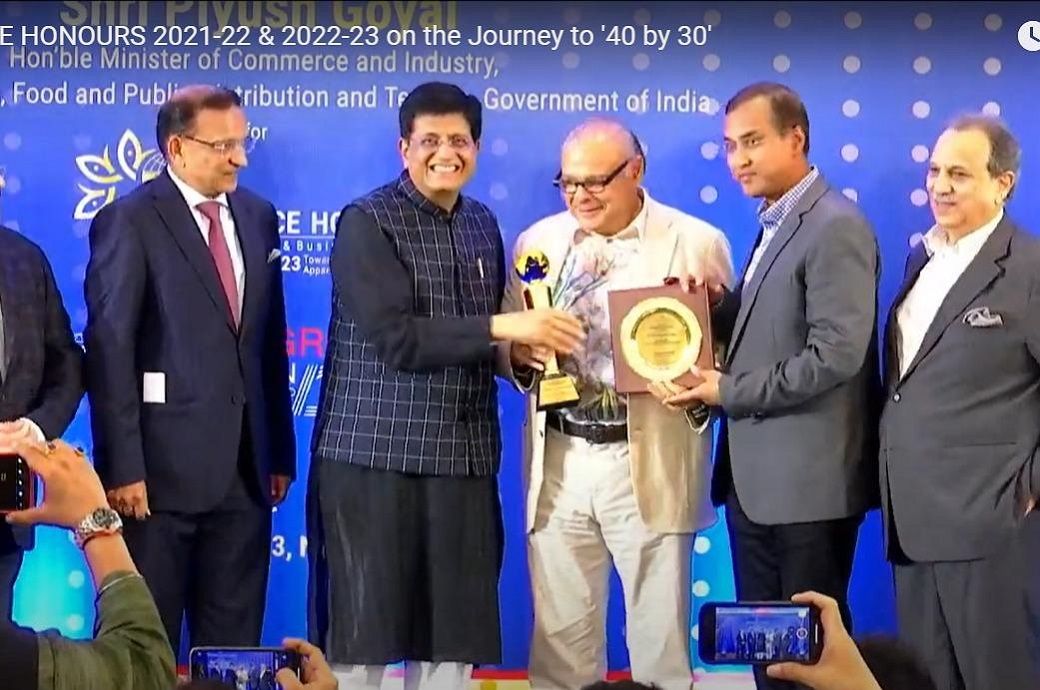The award was accepted by Seth, and Pallab Banerjee, managing director of Pearl Global Industries.
Pearl Global Industries, established in 1987, is a premier multinational textile supply chain company headquartered in Gurugram. With operations spanning eight countries—namely India, Bangladesh, Vietnam, Indonesia, Hong Kong, Spain, UK, and US—it boasts an annual turnover of $450 million and a workforce exceeding 32,000 individuals. Pearl Global Industries annually produces over 70 million units of apparel for some of the biggest brands in the industry.
India’s textile minister Piyush Goyal awarded Pearl Global Industries with the AEPC Excellence Award for highest woven garment exports in 2021-22 and 2022-23.
Thirteen awards were given to various firms for diverse product categories.
Pearl Global, led by Deepak Seth and Pallab Banerjee, is a multinational textile company in Gurugram, India.
During a discussion, Seth mentioned that several textile companies from Vietnam, Bangladesh, Sri Lanka, and other textile exporting countries are interested in investing in India. He suggested providing ‘Plug and Play’ facilities to foreign companies, noting that foreign investors are hesitant to acquire land and build factories. He argued that foreign direct investment (FDI) could be attracted by offering industrial space with ‘Plug and Play’ facilities on a long-term lease, which could lead to significant investment in India’s textile sector.
Seth also recommended focusing on man-made textiles to increase India’s exports. He pointed out that cotton is only available for three to four months a year, limiting the expansion of cotton-based garments. In contrast, man-made garment exports have a vast potential due to the better availability of the fibre. By focusing on man-made garments and other products, India could diversify its product range and align with the global trend of dominance in the man-made fibre-based textile industry.
Fibre2Fashion News Desk (KUL)


:max_bytes(150000):strip_icc()/Health-GettyImages-2190548475-32f16dd1c0b0453f9de5c8c766097399.jpg)


